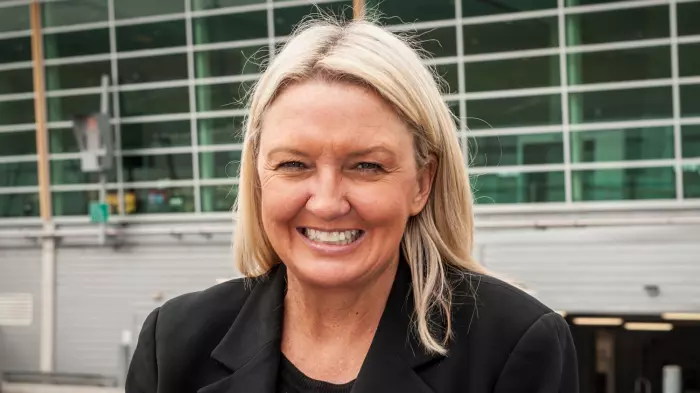BusinessDesk investments editor Frances Cook responds to emails from readers each week to answer questions about money. Below, you'll find her expert advice. Send your own questions to [email protected].
Hi,
I'd love your advice on what you'd do to grow your savings as quickly as possible. I'm starting with $1,000.
With this small amount, would you leave it in a savings account, earning the most interest you can, or start investing it in something like a high-interest on-call account? Or maybe shares?
I look forward to reading your reply.
Thanks,
L.
Hi L,
My answer to you is all about time. Let’s start by figuring out how fast you can grow your money.
Supercharged savings
Finding the best interest rate is a smart move if you’re interested in building up your savings quickly.
Savings are for the money you want on hand, reliably, in case life changes or an emergency comes your way, like an unexpected car repair.
So you want it to sit somewhere safe (like a bank or highly rated financial institution) and ideally get as much interest as possible (like a higher-interest on-call account).
If you’re trying to compare different accounts, I quite like Canstar’s comparison search engine, which you can find on their website here.
You say you’re starting with $1,000, which sounds like an ideal amount to have focused on savings.
As you keep saving and putting little bits away, you might hit a tipping point where some of it would do better for you in investments, which earn more.
The idea is to save first, then once you’re financially stable from life’s curveballs, you can earn a bit more investing the rest.
So, as a rule of thumb, $1,000 aside for true savings. Then, three months of your core living costs are saved up to protect you from something like losing your job. Then, you might look at longer-term investments.
There’s a little maths hack to help you determine options as you move through these phases.
A bit of maths
The rule of 72 can help us with these types of decisions. It’s a rule of thumb that helps estimate how long it will take to double your money, depending on how much you expect to return from a certain investment.
All you do is divide 72 by the expected percentage return (how much profit you get as a percentage).
So, say you’re considering a high-interest savings account. Right now, they’re about 5.5%.
But interest rates are quite high at the moment, and expected to come down again in the next few months or years.
So, considering a longer timeframe, about 3% is more realistic over time.
Meanwhile, investments like the sharemarket give an average return of roughly 10% over time.
However, I (and most other financial commentators) prefer to use 7% as a rule of thumb because that includes losses to things like investment fees, taxes, and inflation.
So if we’re looking at the high-interest savings account, 72 divided by three, that’s roughly 24 years to double your money.
If we’re looking at shares, 72 divided by 7, that’s just over 10 years to double your money.
A big but
It’s not just about how much you’ll get back, though.
The investments that give you a higher return, or profit, on your money also need more time to work.
Even for a savings account, banks and other lenders will usually offer you more money if you're willing to commit for a longer period of time. They get more certainty; you get more cash.
Or if we look at shares, they give some of the highest returns on your investment … but that’s as an average figure spread over the years.
Some years, the sharemarket has a shocker, and your money might even seem to go down. But you’re hanging in there for the years where it’s a bumper result, maybe 15-20%.
The thing is, you simply don’t know when that bumper result is coming. Anyone telling you they do is probably trying to sell you something.
So the trick for most shares investing is just being in the market, ready, waiting, in the queue for when that boom happens.
Meanwhile, a high-interest savings account doesn’t earn as much on average over several years, but it gives you a reliable result locked in each year.
It also gives you that result each year, which means that if you have a shorter period of time to wait out ups and downs, it’s a better idea.
So, unfortunately, it’s not just one option of "here’s how to make the most money". Financial advice would be much simpler if that were the case.
It’s more about how long you have and how much risk you can take that guides your decision.
I use a Money Timeline to help with these decisions.
Bear in mind, it’s just rules of thumb that apply to most situations, but it gives some clarity on how the time you’ve got influences where to put your money.
The Money Timeline
1 year or less: a cash savings account or conservative KiwiSaver. This money won’t grow and will, in fact, slowly become less over time because of inflation.
However, this is a necessary sacrifice. It also won’t bounce up and down in value, leaving you at risk of not having the money you need in an emergency or a car repair.
2-3 years: term deposits, sometimes bonds, or a balanced KiwiSaver.
Term deposits earn less but are safer. Bonds have slightly more risk and earn slightly more.
They’re both considered financial products that will be safe but ask you to lock your money up for the medium term to make a bit more money from them.
5-10+ years: shares or a growth KiwiSaver.
This money will earn you the most, but it also needs the most time to do it.
Shares bounce up, down and sideways, and that’s actually how they make their money. You need not chicken out and sit on the sidelines during a dip because buying companies when they’re going cheap is how you make the profits you rely on.
When the economy recovers, so does your investment. It's important to have this in mind to prepare for the rollercoaster.
Send questions to [email protected] if you want to be featured in the column. Emails should be about 200 words, and we won't publish your name. Unfortunately, Frances is not able to respond to every email received or offer individual financial advice.
Information in this column is general in nature, and should not be taken as individual financial advice. Frances Cook and BusinessDesk are not responsible for any loss a reader may suffer.













